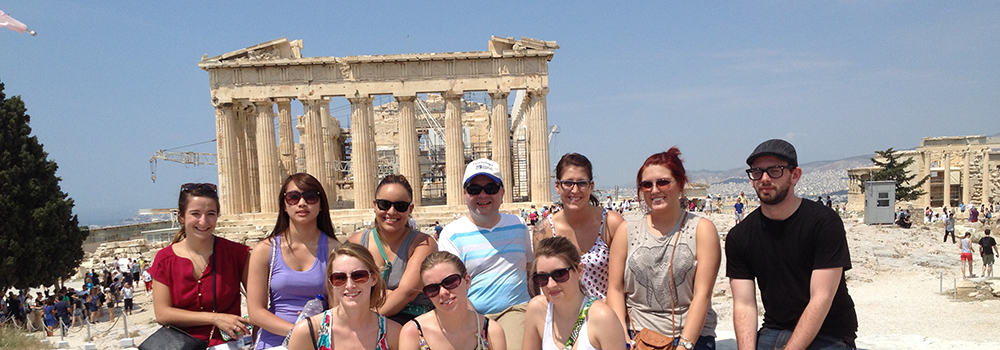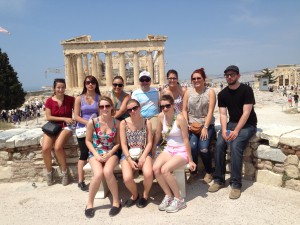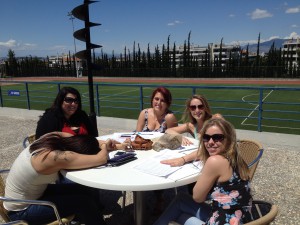As part of their first assignment, students reflected on their experiences of culture shock or “cross-cultural surprise.” The most commonly mentioned experiences had to do with fast and seemingly-reckless driving behavior and lack of parking regulations (or at least lack of enforcement), the ubiquity of dog poop and graffiti, and the perceived rudeness of certain Greek people (and one pretty egregious expression of anti-American sentiment). Students were asked to think about these experiences in relation to their expectations and the values reflected by these expectations. Finally, students were asked to locate their experiences of cultural difference with respect to the well-studied distinction between individualism and collectivism.
One student reflected on the meaning and function of American politeness, and its relationship to individualism, in light of her experiences in the restaurant industry: “…[W]e see it as our personal responsibility to make other people feel comfortable and welcome. This is even seen in our restaurant system. We put such a big emphasis on being polite and making things easy for customers that waitresses do not get paid unless the customer is satisfied with his or her service and decides to tip. In contrast, wait staff here will be paid regardless of how good or poor their service is. The restaurant industry and our emphasis on politeness and kindness also reinforce the idea that our society is more individualistic than other societies, such as Greece. In the aforementioned example of waitresses being paid depending on the quality of their service, the industry is putting all of the responsibility on the waitress. In reality, everything plays into the experience of the guest; the host staff, the kitchen staff, the food quality, the management team, and the atmosphere all affect this. However only the waitress is penalized for a poor experience and everyone else gets paid. We are very individualistic and it is normal for us to expect on person to be able to overcome any other issues and make the experience great. However, in more collectivist societies such as Greece, it is everyone’s shared responsibility to make the guest happy.”
Adding to this line of analysis, we have been talking in class about how politeness toward strangers, in general, is something we would expect to see in an individualistic culture, versus a collectivistic emphasis on family and one’s reference group and somewhat less hospitable attitudes and behaviors toward strangers. We also discussed how Greece is a culture in transition from more collectivistic to more individualistic modes. But while it ranks somewhere in the middle on this cultural dimension relative to other nations, it ranks at the very top in terms of uncertainty (i.e., in the face of cultural change), which is perhaps not surprising given the ongoing economic crisis. Knowing this has helped us to contextualize the currently volatile politics, and the otherwise baffling prevalence of graffiti, even in the wealthiest neighborhoods. Specifically, graffiti is a form of youth protest here, as we have been told. Our increasingly complex perceptions of our host country will become even more so this Friday, when an ACG anthropology professor will speak to the class about the Greek concept of philotimo, which combines ideas about pride and hospitality—a combination that may seem a little strange to the average (American) Northeasterner, but which is apparently central to Greek culture. More soon!


